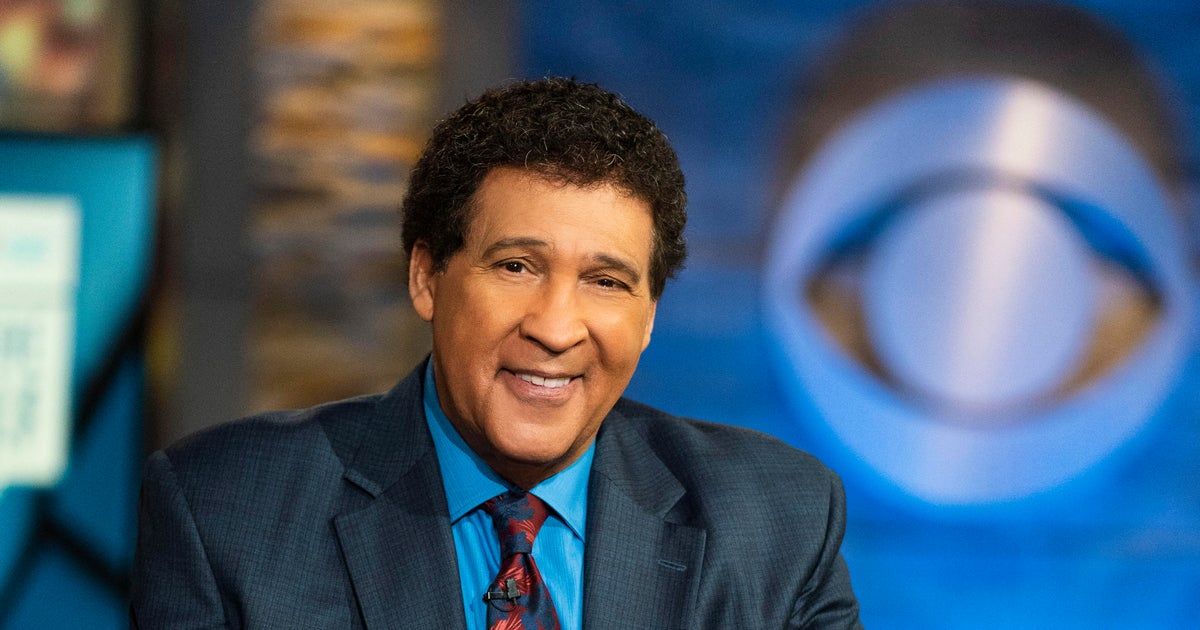With "The Water Dancer," Ta-Nehisi Coates is ready to tell the stories of the enslaved
It took Ta-Nehisi Coates 10 years to imagine the world of enslaved people he depicts in "The Water Dancer," the acclaimed author's highly anticipated debut novel. The book tells the story of an exceptionally gifted man named Hiram who was born in bondage.
"There were enslaved Africans who literally leapt into the water," Coates told "CBS This Morning" co-host Gayle King, explaining the inspiration behind the book's title. "When they were, you know, being brought over to America, people would talk about how, you know, these folks when they leaped ... they almost seemed to dance on the waves."
Water plays a symbolic role in the book beyond the title.
"What Hiram has is memory," Coates said of the book's main character. "The water symbolizes the need to not forget. To remember what happened and the great power that he can pull from that."
King called the novel one of the few books that "touches on the humanity and the emotion of slavery." Coates said he sought to center the story "on the emotions and the feelings of the actual enslaved people."
On Monday, Oprah announced she's chosen the novel as her latest book club pick.
"The Water Dancer" is set in a place called Lockless, a fictional plantation inspired by Thomas Jefferson's famed Monticello estate. Jefferson, a president and founding father, enslaved over 600 people himself.
"You can't look for a fairy tale. This is history. History's dirty, you know?" Coates said.
But the first draft of his book "felt dead." So to bring his story to life, Coates went to an excavation site where archaeologists unearthed the home of an enslaved family and the artifacts they used. It was there, he said, that he found his book's "heart."
"You have to get the small details of their life," he explained. "You have to get them playing marbles. You have to get them playing the instruments. You have to get their humor."
"After I left here, I had it. I was buzzing. And when I sat down, it went out of my fingers and onto the page," he said.
Coates also talked with King about his difficult career path of supporting himself as a writer.
Early on, "I wasn't makin' it. I mean, I had gotten fired from this alternative paper in Philly. I'd gotten fired from The Village Voice, I'd gotten laid off from Time magazine. All that happened in a period of five years," he said. "You know, I wouldn't have stopped the writing. I just didn't think I could make a career at it. It was quite clear that whatever it took to make a career of writing, I probably didn't have it. Even like when I went to The Atlantic — I ended up being at The Atlantic for 10 years. But the first two years I was like, it's— this is how it ends. Like, I'm just waiting, like they're gonna be like, 'Kid, you really ain't got it.'"
He credits his wife for helping turn him around to become the author he is today: "My wife wasn't hearing that. You know, you need good people in your life, you know what I mean? And I'm lucky that I live with a really, really good and wise person," he said.
Asked if he has any more novels to write, Coates said he's got many.
"Today I was talking to one of the historians here, and I was thinking, what if it's my job just to tell the story of the enslaved? What if that's everything I write from here on?" he said. "Because there's so much. You have to remember, the period of enslavement is 250 years in this country, and up until relatively recently, the story has only been told by people who had a vested interest in shading it a certain way and really erasing the stories of the enslaved. Now, that's a tragedy. But if you're a storyteller, well, that's the most beautiful thing in the world. Because there's a wealth of information that people have not explored and they're just beginning to dig into."



